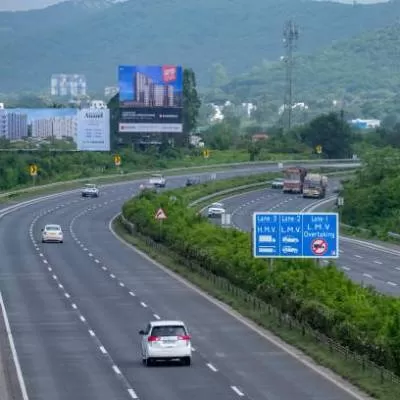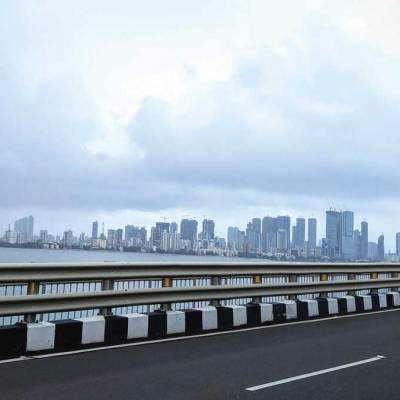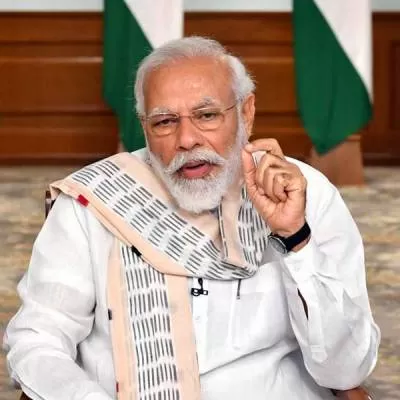- Home
- Infrastructure Urban
- ECONOMY & POLICY
- Call to Action

Call to Action
Last year, as <span style="font-weight: bold;">CONSTRUCTION WORLD </span>turned 20, we were on our way to an upswing in the economy after a long period of legal and administrative procrastination. Here's what I wrote in the editorial in October 2016: <p></p> <p>During the current regime of the NDA government, the narrative has shifted from unclogging, untangling, unblocking to easing, simplifying, digitising, and is now in the process of shifting to acting within timelines. Laws have been deleted, rules have been tweaked, and impetus to be proactive and business-friendly within the framework of law has been provided. Road projects have been the first to accelerate, the Railways has restructured its orientation and Airports are set for take-off. Smart Cities have replaced the urban renewal mission and Swachh Bharat has become the common code of call. India has been marketed globally like never before and this has been most timely as its growth in GDP is at its most feverish pace. </p> <p>Oil prices have been favourable and so also the rain gods. The stage is set for a revival and the dewdrops of a new morning are glinting in the rays of the rising sun. Then, on November 8, 2016, the government's demonetisation move followed by GST in July 2017 knocked the wind out of the sails. The economy has suffered, as reflected in our GDP growth, which dived to 5.7 per cent. </p> <p> <span style="font-weight: bold;">Where is the problem?</span><br /> The national agenda appears to be motivated more towards elections than the fixing of the economy. It is time to change the order of priority. According to CMIE, announcements of new industrial and infrastructural projects remained muted in the first quarter of 2017-18. Only 448 projects were announced during the quarter. This is the lowest quarterly project announcement seen since June 2014, the time when the last capex cycle bottomed out. </p> <p>Further, the completion of projects has dipped over previous consecutive quarters. Lower project initiation and a falling commissioning rate will be a double whammy û the only way to change this situation is to enhance the rate of commissioning of the project pipeline and, at the same time, improve the launch of new infrastructure projects.</p> <p>One of the biggest reasons why infrastructure projects failed was the non-availability of long-term finance to match the gestation period required in infrastructure project financing. </p> <p>The bullet train project is being funded by the Japanese over a 50-year period with a 15-year moratorium! However, our infrastructure projects all set sail on a seven-year tenure funding. How were they likely to remain sustainable? How did bankers and governors even fantasise that the projects would turn profitable and repay their loans in such short tenures? This premise itself was flawed. Given the business environment with our archaic laws and land acquisition issues, the time taken to sustain would have been longer rather than shorter. Even hotels require a seven-year gestation.</p> <p>Now, the government has already nearly exhausted the option of aggressive public spending in keeping with the requirements of targeted deficit of 3.2 per cent. This means one lifeline has been exhausted. Given the fact that inflation is yet not a worry, an interest-rate cut can be an option. However, it may not kick-start the demand cycle, given the health of businesses. The good news is that the government has recognised that this needs to be fixed. Amid call for elections, which has been the major source of diversion for the leaders of our country, they are now seeking remedies to recharge the economy. But, unfortunately, it takes a lot of factors to work in unison to achieve economic momentum. </p> <p> <span style="font-weight: bold;">What needs to change? </span><br /> Demand has fallen, credit disbursals are down, private capital investment has fallen, exports have fallen, the project pipeline is drying up, employment is a great area of concern, corporate performance has been dismal, and industrial growth has remained tepid - all signs of a listless economy. Amid this, we have some positive signs too; inflation is still under control, forex reserves are at over $400 billion, the monsoon is only 5 per cent deficient, public spending has been accelerated, and the fiscal deficit is still within the target of 3.2 per cent. </p> <p>Apart from road projects that keep soothing our nerves, India's metro rail projects are injecting enormous capital across multiple cities. Nearly Rs 1 lakh crore of investments are scheduled in metro lines alone in the Mumbai Metropolitan Region. Indeed, the metro is the new alternative to road connectivity within cities and considering it is all being funded by the government (barring Hyderabad and partially in Mumbai), it is more sustainable. </p> <p><span style="font-weight: bold;">It is also driving growth in steel and construction. </span><br /> Metro projects with a total length of 370 km are operational in eight cities. Further, metro projects with a total length of 537 km are in progress in 13 cities. New cities acquiring metro services include Hyderabad (71 km), Nagpur (38 km), Ahmedabad (36 km), Pune (31.25 km) and Lucknow (23 km). Last month, the government introduced a new metro policy that focuses on giving clarity on the development of projects, collaborations, participation, standardising norms, financing, and creating a procurement mechanism so projects can be implemented effectively.</p> <p> <span style="font-weight: bold;">Towards revival </span><br /> Just as it took several bouts of measures to hammer the steam out of the economy, it will take aggressive measures to secure its revival. Here are some of them:<br /> </p> <ul> <li>Raise the minimum levels for GST for taxes but keep compliance mandatory within an easier time framework. This will soothe the informal economy, which is gasping for oxygen.</li> <li>Raise the levels of income tax returns exempted from scrutiny.</li> <li>No appeals should be filed by government departments against judgements awarded by official arbitrators. This defeats justice and clogs up the legal system.</li> <li>Accountability of officers issuing refund of taxes needs to be stepped up. (Exporters are a harried lot, among others.)</li> <li>Incomplete projects must receive full attention where investments have taken place but returns are stuck owing to red tape. </li> <li>Change the contractor, transfer the administrator, and use the power of the law where small patches of yet-to-be acquired land are stalling completion. (Take, for instance, incomplete dam projects in Maharashtra.)</li> <li>Don't buy land for infrastructure projects. Instead, provide a stake to the owner with a minimum rental guarantee (that takes care of his ongoing sustainability) and an alternate marginal land parcel (for his occupation). As per recent estimates, the capex for land alone for road projects is Rs 185,000 crore.</li> <li>Use government land for BOT affordable housing projects where builders collect rent to offset their investment, akin to a toll offsetting the capex on a road project.</li> <li>Water and waste management projects seek lowest capex and yet are the least among all infrastructure projects, even within the smart cities mission. They require a special thrust.</li> <li>Allow banks, pension funds and provident funds to lend to the infrastructure sector on a 25-year basis with a moratorium.</li> <li>If the campaign to penalise black money was carried out nationally with such aplomb, why not a campaign to incentivise honest tax payers and honest business houses! Why not offer a bonus to honesty? Currently, it appears that the honest taxpayer is always burdened with loads of compliances and subject to harassment. Introduce a loyalty point credit system for those who comply. Let those points accumulate to gain certain advantages that offer prestige and esteem. Let them be treated with a level of dignity by government organisations and bureaucracy just as first-class passengers are treated by an airline. It is time to bring back the class system where the divider will be honesty, not wealth.</li></ul> <p>At ASAPP, we have conducted a tour of several municipalities and smart cities where we have interacted with city leaders, discussed their problems and offered smart solutions; at Solapur, Jabalpur, Jaipur, Thane, Kalyan-Dombivali, Ajmer, Lucknow, Visakhapatnam, Guwahati, Ahmedabad, and so on. In the coming year, we plan several initiatives to contribute to the economic development of our country. We cannot merely be content with the thought that India has potential - we are determined to convert this potential energy into kinetic energy. </p>






















